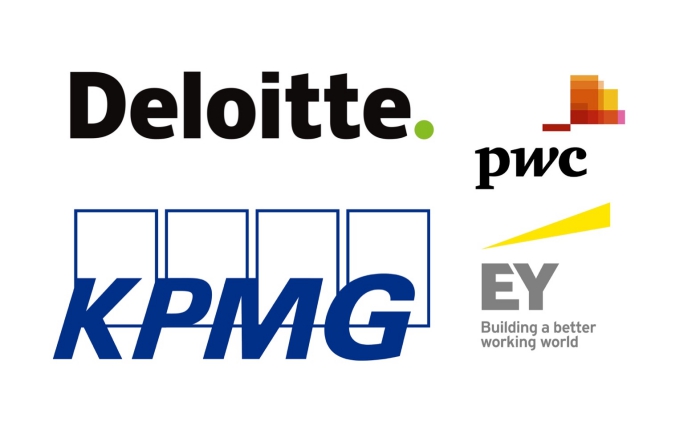The UK’s reviews of the Big Four auditing firms have largely adopted an approach of more regulation and government oversight. This approach is not an unnatural response in the face of the evidence against the audit industry, but the industry’s political power over regulators, and its clout over academics, have to be reckoned with.
 Britain has just released two bold and damning reviews on the Big Four oligopoly in auditing. Amongst the highlights of these reports, the UK’s Competition and Markets Authority has called for a ring-fencing of the firms’ audit practices from their consulting businesses and for dual audits of large companies by Big Four and non-Big Four firms. A separate government-commissioned review has called for disbanding the audit-industry regulator, the Financial Reporting Council, which is a hybrid equivalent of the FASB and PCAOB in the United States.
Britain has just released two bold and damning reviews on the Big Four oligopoly in auditing. Amongst the highlights of these reports, the UK’s Competition and Markets Authority has called for a ring-fencing of the firms’ audit practices from their consulting businesses and for dual audits of large companies by Big Four and non-Big Four firms. A separate government-commissioned review has called for disbanding the audit-industry regulator, the Financial Reporting Council, which is a hybrid equivalent of the FASB and PCAOB in the United States.
Given that the UK is currently teetering on the brink of a calamitously mismanaged Brexit, it’s legitimate to ask “Why these reports now?” Cynically, one could argue that the reports are a distraction, commissioned to lend the appearance of a government getting tough on bad business. But the far-reaching nature of the reviews’ recommendations suggests that they are more than just lip service. The reviews, to their credit, have gone further than most had expected—no doubt upsetting many industry insiders.
What has really precipitated this moment of auditor reckoning in the UK is the spectacular and sudden collapse of one of its largest public-service outsourcers, Carillion. This company, with operations in many areas of citizen services, was very visible to the general public. So, when it folded so abruptly in the wake of aggressive accounting practices, the question was asked, What were the auditors doing? It so happened that all of the Big Four—Deloitte, EY, KPMG, and PwC—were in some way tied to Carillion. That certainly didn’t help the oligopoly’s cause.
Of course, concerns with the concentrated and conflicted nature of auditing are not simply a British issue. Nor are these concerns particularly recent. Critics have been raising alarm bells for years; but the industry’s political power over regulators, and its clout over academics, has been a force to reckon with.
For instance, over a period of about thirty years, the audit industry has been part of a lobbying cabal that has purged accounting principles of sensible and longstanding practices such as “prudence”—the notion that we should be more skeptical of corporate management’s purported successes than of admitted losses. Prudence in accounting rules helped safeguard investors against heady optimists and fraudsters; paradoxically, it also helped auditors do their job by giving them a framework to temper their clients’ more heroic assumptions. But prudence was eliminated as part of a bizarre project that stripped accounting principles of the need to be “reliable.”
The UK’s public reviews of auditing appear to want to do something meaningful to get accounting back on track, but they are clearly walking a tightrope. The reviews rightly recognize the UK’s limited leverage to act alone in this matter, especially in this delicate moment of divorce proceedings with the EU. Instead, the governments in the US, EU member states, and other large economies now have the opportunity to muster the political will to act in concert to set right the rules of auditing. In a de-globalizing world, however, this outcome looks unlikely.
The UK’s reviews of auditing have largely adopted an approach of more regulation and government oversight. This approach is not an unnatural response in the face of the evidence against the audit industry. But it is worth noting that auditing is already a heavily regulated industry, both in the UK and worldwide. In fact, one could argue that it is not the lack of regulation but rather the capture of regulators by auditors that has allowed the industry to operate as it has. If so, the proposal for more regulation simply throws oil on the fire.
The US, for instance, adopted stricter regulations on auditing in the wake of Enron and the collapse of Arthur Andersen in 2001-2002. The PCAOB was created with just this purpose. But the industry continues to have a strong hold on regulators, through the revolving door between audit firms and the overseers and through the industry’s strong political ties to the regulators’ masters in Congress.
One alternative to more regulation is to radically open up the auditing industry to outsiders. Entrepreneurs at the forefront of Big Data, blockchain technologies, and artificial intelligence could be encouraged to bring their analytical firepower to scrutinize transactions and evaluate reporting judgments. Of course, this would mean abandoning the professional, rules-bound structure of auditing. But has that structure really been serving the economy well, at least over the past two decades?
I suspect that radical, disruptive competition from technology will do more to get the Big Four sweating to add value than any new regulation. However, I would be very surprised if any major government, with the possible exception of Singapore, would be so bold as to consider such an experiment.
Perhaps the most serious, and corrupting force in auditing, is the joint provision of audit and consulting services. The auditors argue that consulting gives them an opportunity to gain deeper insights into the business of their clients, which in turn improves audits. This claim is possibly true to a point, but the non-audit services today are a bigger (and more profitable) part of the business than core audits are. The tail wags the dog.
Pragmatically speaking, it’s difficult to imagine a scenario where an industry, a company, or an individual—even one in the business of trust, such as auditing—is completely devoid of any conflicts of interest. But when such conflicts do arise, the onus is on the entity to show that it is doing everything reasonable to prevent corruption. This is where the auditors have failed, at least in winning the confidence of the general public.
The auditors are well served in this moment of public reckoning to take the feedback from the reviews in all humility and sincerity, and to ask what they can credibly do to win back the trust, which is the foundation of their business model.
All this matters because audits are essential to investor confidence in the separation of ownership and control – the basis for a modern capitalist economy. Perhaps it is no coincidence that public support for capitalism in the US and the UK, especially amongst the young, is amongst the lowest it has been since World War II.
Karthik Ramanna is Professor of Business and Public Policy at the University of Oxford.
Disclaimer: The ProMarket blog is dedicated to discussing how competition tends to be subverted by special interests. The posts represent the opinions of their writers, not necessarily those of the University of Chicago, the Booth School of Business, or its faculty. For more information, please visit ProMarket Blog Policy.







